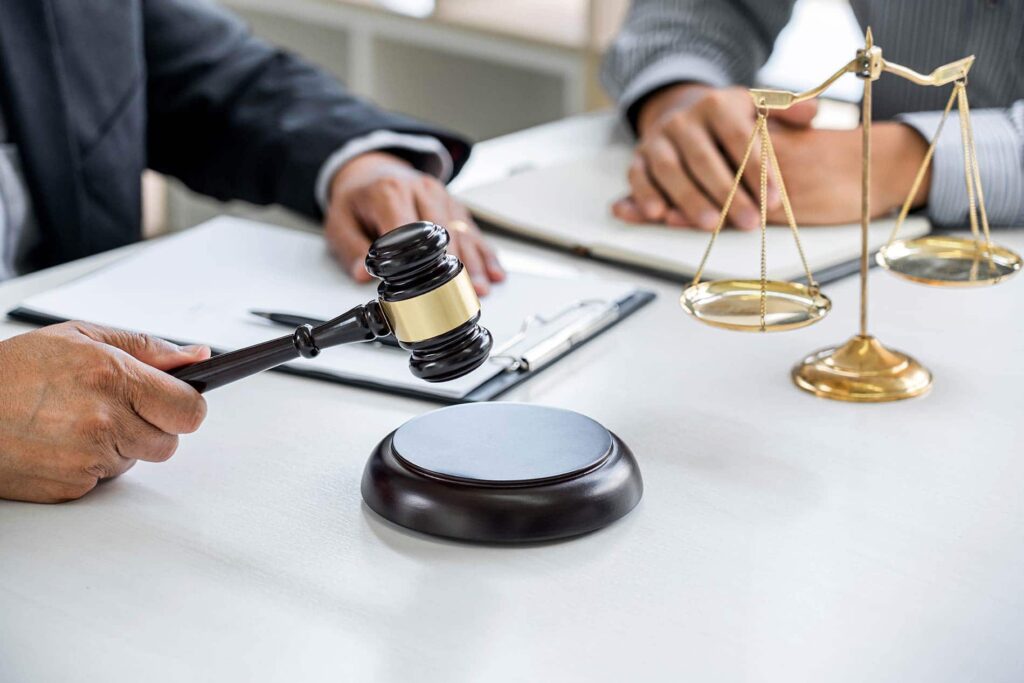In the world of real estate, the process of buying or selling a property can often be complex and daunting. One crucial aspect of this process is conveyancing. Understanding the basics of conveyancing is essential for both buyers and sellers to ensure a smooth and successful transaction.
Understanding the Basics of Conveyancing
Definition and Importance of Conveyancing
Conveyancing is the legal process of transferring ownership of property from one person or entity to another. It involves various legal documents, inspections, searches, and negotiations to ensure a secure and valid transfer. Conveyancing Melbourne plays a vital role in real estate transactions as it helps protect the rights and interests of all parties involved.
When it comes to buying or selling property, conveyancing is an essential step that cannot be overlooked. It provides a legal framework that ensures the smooth transfer of ownership and protects both the buyer and the seller from any potential risks or disputes. Without proper conveyancing, there is a higher chance of encountering legal issues or complications that could lead to financial loss or even the invalidation of the transaction.
During the conveyancing process, the conveyancer acts as a guide and facilitator, ensuring that all necessary legal requirements are met and that both parties fully understand the terms and conditions of the transaction. They play a crucial role in drafting and reviewing contracts, conducting property searches, and ensuring compliance with relevant laws and regulations.
See Also: Why Online Wills Are the Future of Estate Planning

The Legal Aspects of Conveyancing
Conveyancing involves a series of legal obligations and requirements. These include preparation and review of contracts, conducting property searches to uncover any potential issues, and ensuring compliance with relevant laws and regulations. It is crucial to engage a professional conveyancer with expertise in real estate law to navigate these legal complexities.
One of the key legal aspects of conveyancing is the preparation and review of contracts. The conveyancer ensures that all the necessary terms and conditions are included in the contract, protecting the interests of both the buyer and the seller. They also ensure that the contract complies with all legal requirements and is enforceable in a court of law.
In addition to contracts, property searches are another important legal aspect of conveyancing. These searches are conducted to identify any potential issues that may affect the property’s value or ownership rights. The conveyancer will perform searches on various databases and records to uncover information about the property’s history, including any outstanding mortgages, liens, or easements that may impact the transaction.
Compliance with relevant laws and regulations is also a crucial part of the conveyancing process. The conveyancer ensures that all legal requirements are met, such as obtaining the necessary permits and clearances, complying with zoning regulations, and adhering to any applicable building codes. Failure to comply with these laws can result in legal disputes or even the invalidation of the transaction.
Overall, the legal aspects of conveyancing are complex and require a thorough understanding of real estate law. Engaging a professional conveyancer with expertise in this field is essential to ensure a smooth and legally sound transfer of property ownership.
The Conveyancing Process in Real Estate Transactions
Buying or selling a property can be a complex process that involves various legal and administrative tasks. One crucial aspect of this process is conveyancing, which refers to the legal transfer of ownership from the seller to the buyer. Let’s take a closer look at the different stages involved in the conveyancing process.
Pre-contractual Stage
In the pre-contractual stage, the buyer makes an offer to purchase the property, and the seller may accept, reject, or negotiate the offer. This stage is crucial as it sets the foundation for the entire transaction. During this stage, the conveyancer plays a vital role in ensuring that the buyer’s interests are protected.
The conveyancer assists in drafting and reviewing the contract, ensuring all necessary information and conditions are included. This includes details about the property, such as its boundaries, any easements or encumbrances, and any special conditions that need to be met. They also ensure that the contract complies with all relevant laws and regulations.
Additionally, the conveyancer may conduct searches to check for any outstanding debts or legal issues associated with the property. This helps the buyer make an informed decision and avoid any potential problems in the future.
Contractual Stage
Once an offer is accepted, the contractual stage begins. This is when the conveyancer works closely with both parties to ensure a smooth transition. The conveyancer acts as a mediator, facilitating communication and ensuring that all necessary steps are taken to complete the transaction.
One of the key tasks during this stage is conducting property searches. These searches aim to uncover any potential issues that may affect the property, such as planning restrictions, outstanding mortgages, or disputes. The conveyancer obtains necessary certificates and clearances, ensuring that the property is free from any encumbrances that could hinder the buyer’s rights.
Furthermore, the conveyancer addresses any outstanding issues or concerns that may arise during the contractual stage. This could include negotiating repairs or adjustments to the purchase price, resolving disputes between the parties, or ensuring that all necessary documentation is in order.
Another crucial aspect of the contractual stage is ensuring that the contract is legally binding. The conveyancer carefully reviews the terms and conditions, making sure that they are fair and protect the interests of their client. They also ensure that all legal requirements, such as the exchange of contracts and payment of deposits, are met.
Post-contractual Stage
After the contract has been signed, the conveyancing process continues with various tasks that need to be completed before the final settlement. The conveyancer takes on the responsibility of coordinating these tasks and ensuring that everything is in order.
One of the tasks during this stage is liaising with financial institutions for mortgage arrangements. The conveyancer works closely with the buyer’s lender to ensure that all necessary paperwork is completed and that the funds are available for settlement.

Additionally, the conveyancer may organize property inspections to ensure that the property is in the expected condition. This could involve arranging for a building inspector or a pest inspector to assess the property’s structural integrity and identify any potential issues.
Another important aspect of the post-contractual stage is coordinating settlement dates. The conveyancer works with both parties, their legal representatives, and the financial institutions to determine a suitable date for the final transfer of ownership. They ensure that all necessary documentation is prepared and that the settlement process runs smoothly.
Throughout the post-contractual stage, the conveyancer represents their client’s interests and acts as a point of contact between all parties involved. They ensure that all legal requirements are met, all necessary tasks are completed, and the transaction is finalized in a timely manner.
In conclusion, the conveyancing process in real estate transactions involves several stages, each with its own set of tasks and responsibilities. From the pre-contractual stage to the post-contractual stage, the conveyancer plays a crucial role in ensuring a smooth and successful transfer of ownership. Their expertise and attention to detail help protect the interests of their clients and facilitate a seamless transaction.
The Role of Conveyancers in Property Transactions
Property transactions can be complex and time-consuming processes. From the initial stages of negotiations to the finalization of contracts, there are numerous legal requirements that need to be met. This is where conveyancers play a crucial role. They are professionals who specialize in property law and are responsible for ensuring that the transfer of property ownership is carried out smoothly and legally.
Duties and Responsibilities of Conveyancers
Conveyancers have a wide range of duties and responsibilities. One of their primary tasks is to conduct thorough property searches. This involves investigating the property’s title, checking for any encumbrances or restrictions, and ensuring that there are no outstanding debts or legal disputes associated with the property.
In addition to property searches, conveyancers also handle the necessary paperwork involved in property transactions. This includes preparing and reviewing contracts, ensuring that all legal requirements are met, and facilitating the exchange of contracts between the buyer and seller. They also oversee the transfer of funds, ensuring that the correct amount is paid and received by the respective parties.
Furthermore, conveyancers play a crucial role in communicating with all relevant parties involved in the transaction. This includes liaising with real estate agents, mortgage lenders, and solicitors to ensure that everyone is on the same page and that the transaction progresses smoothly.
Overall, the expertise and attention to detail of conveyancers help to minimize potential risks and streamline the transaction process. Their knowledge of property laws and regulations ensures that all legal requirements are met, protecting the interests of both the buyer and seller.

Choosing the Right Conveyancer
Choosing the right conveyancer is crucial for a successful property transaction. With so many conveyancers available, it is important to consider a few key factors before making a decision.
Firstly, it is important to consider the qualifications and experience of the conveyancer. A good conveyancer should have a solid understanding of real estate laws and regulations, as well as experience in handling similar transactions. This ensures that they are equipped with the necessary knowledge and skills to navigate any challenges that may arise during the process.
Secondly, reputation is an important consideration. It is advisable to seek recommendations from friends, family, or trusted professionals who have previously worked with a conveyancer. Online reviews and testimonials can also provide valuable insights into the quality of service provided by a conveyancer.
Lastly, communication skills are essential when choosing a conveyancer. Clear and effective communication is vital throughout the transaction process, and a conveyancer with excellent communication skills can help to ensure that all parties are kept informed and updated on the progress of the transaction.
In conclusion, conveyancers play a vital role in property transactions. Their expertise, attention to detail, and ability to navigate complex legal requirements help to ensure that the transfer of property ownership is carried out smoothly and legally. By choosing the right conveyancer, individuals can have peace of mind knowing that their property transaction is in capable hands.
Common Challenges in the Conveyancing Process
Delays and How to Avoid Them
Delays in the conveyancing process can be frustrating for all parties involved. These delays can be caused by various factors such as incomplete paperwork, outstanding property searches, or difficulties in coordinating settlement dates. To avoid delays, it is important to engage an experienced conveyancer who can proactively address any potential issues and ensure the process moves forward efficiently.
Dealing with Legal Issues
Legal issues can arise during the conveyancing process, posing potential risks and complications. These issues may include boundary disputes, outstanding mortgages, or undisclosed easements. A knowledgeable conveyancer can identify these issues early on and advise on the appropriate actions to address them, protecting their client’s interests and avoiding potential legal disputes in the future.
The Impact of Conveyancing on Property Journeys
How Conveyancing Influences Buying Decisions
Conveyancing plays a significant role in influencing buyers’ decisions. A thorough conveyancing process provides buyers with the necessary information and peace of mind regarding the property they intend to purchase. It helps uncover any potential issues or liabilities associated with the property, allowing buyers to make informed decisions and negotiate favorable terms, thus safeguarding their investment.
Conveyancing and Property Ownership Transfers
Property ownership transfers involve complex legal procedures, which can be overwhelming for property owners. A conveyancer simplifies this process by handling all legal formalities, ensuring a seamless transfer of ownership. Their expertise ensures that all necessary steps are taken to protect the interests of both the buyer and the seller.
In conclusion, conveyancing is a fundamental aspect of real estate transactions that ensures the smooth and legal transfer of property ownership. Understanding the basics of conveyancing and engaging the right conveyancer can significantly contribute to a successful property journey. By navigating the legal complexities, addressing challenges, and safeguarding interests, conveyancers unlock the potential of property transactions, providing a solid foundation for the future of real estate.

